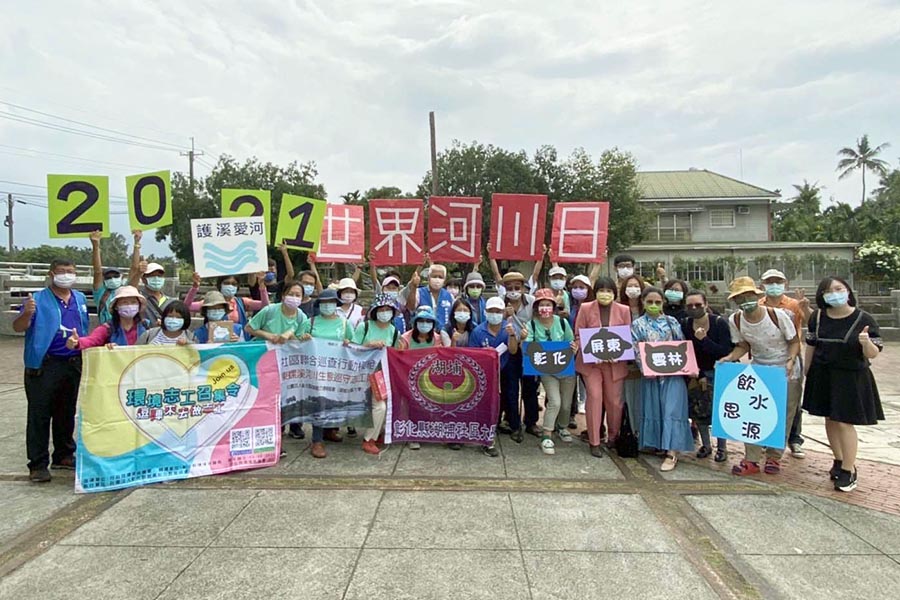In a response to “World River Day”, on October 7th, Deputy Executive Director Dr. Herlin Chien of the NPUST Sustainable Development Office invited the Environmental Protection Bureau of Pingtung County, Wanluan Township Office, Taiwan Donggang River Conservation Society, Yunlin County legislative member Liao Yu-hsien, the Changhua County Luoxi Community Patrol Team and a group of over 100 teachers and students from NPUST to take part in a conservation activity entitle “NPUST Responds to World Rivers Day – Investigation into Challenges and Opportunities for Livestock Wastewater”. The activity began in the morning with a trip to Wugou Community Park in Wanluan, where an ecological survey was conducted. Back at the university for the afternoon, a sharing and discussion session was held on the topic of “River Patrol and Rehabilitation Action”. In addition to the ecological tour and the discussions with representatives from all over the world, students of NPUST added a creative musical element to the activities by writing songs on river conservation and performing them at the venue.
Dr. Chien, who also serves as Associate Professor at the university’s Center for Teacher Education, explained that “World River Day is the internationally authenticated day for river conservation. The NPUST Center for Teacher Education promotes the concepts and goals of UN Sustainable Development through courses on international organizations. By coordinating with the festival, we’re helping students to experience the importance of water conservation and to develop ideas about public issues of concern to the international community.” Yunlin County legislative member Liao Yu-hsien said “protective river banks with natural construction techniques; vegetation, fish, shrimp and zooplankton – these are my hopes for the rivers. Humanity and rivers are inseparable. The protection of water environments is an issue for all generations.” A participant by the name of Mingwei Fu shared some sentiments: “I am very happy to participate in this event. The cooperation between civic groups, schools, businesses, and government agencies has more advantages than disadvantages and the community sharing is great.” The United Nations sponsored Sustainable Development Goals (SDGs) are seventeen in number. Of these, World River Day is closely related to SDG6 (Clean Water and Sanitation), SDG11 (Sustainable Cities), SDG13 (Climate Action), SDG14 (Marine Ecology), and SDG15 (Terrestrial Ecology).
Since 2005, the United Nations has designated the last Sunday of September each year as “World Rivers Day”—an international day to show common care for rivers and the protection of the river environments, culture, and ecology. This year’s World Rivers Day fell on September 26.
With focus given to such things as green energy technology and smart agriculture, NPUST has long been committed to using science and technology-related education to help achieve sustainable development goals. The university is located in an area in Taiwan which has considerable livestock wastewater problems, and the university has taken up the responsibility for coordinating with the community on the matter. Together with relevant stakeholders they are working together to find solutions to the wastewater problems in the area, while simultaneously cultivating a future generation of experts to take on the task.
The representatives from Changhua and Yunlin counties, which are also deeply affected by the problem of livestock wastewater, were invited to reflect on common pasts and share thoughts about a common future. The event not only united government and academia, but also brought in NGOs and the broader public to reflect on the consensus of the United Nations Sustainable Development Goals. World River Day was established to awaken and inspire new depth to people’s love and care for rivers. In conjunction with the International River Day, together the people responded with care for the environment, culture and the ecology of rivers. Hopes are that the activities will raise people’s awareness of river conservation and that together they will work to protect our natural resources.

